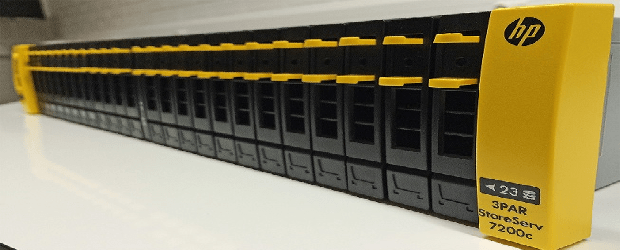LONDON, UK – Executives from Hewlett Packard Enterprise (HPE) were throwing around a lot of “first of its kind platform” and “the only truly all-in-one solution” when they announced their new hybrid infrastructure at the HP Discover Conference.
The introduction of HPE Synergy, the company says, finally solves a crucial pain point for organizations that want to run both traditional and cloud-native applications. It’s basically an application play, but the devil is in the details.
What HPE refers to as composable computing leverages fluid resource pools, software defined intelligence and a unified API providing the ability for organizations to continually optimize the right mix of traditional and private cloud resources.
Set to ship in April, Synergy hopes to help IT departments worldwide develop and deploy applications faster than anything else.
Composable infrastructure delivers one common API making it easier to automate resources, according to Paul Miller, vice president of marketing for HPE Converged Systems.
“It can bridge two different technology environments, workloads and processes to run the business and new efforts revolving around big data and the Internet of Things found in enterprises,” he said. “Today’s infrastructure is pretty static and can span multiple chassis and rack.”
The problem they believe they have solved is the length of delivery time, and the size of the team required, for a new mobile application or service.
Claiming traditional infrastructure can take an average of six weeks for an organization’s IT team to complete, Synergy provides an operating environment where one person can deploy composable infrastructure by streaming the delivery of IT services and enabling IT to better respond to Lines of Business’ (LOB) quickly changing needs.
“What we have constructed is a new system that is built from the ground up for composability,” said Gary Thome, vice president and chief engineer of converged data infrastructure at HPE.
Synergy’s built-in software intelligence, auto-discovery capabilities and fluid resource pools enable customers to instantly boot up infrastructure ready to run physical, virtual, and containerized applications.
“When we talk to CIOs, it’s really about how to bridge the old world and the new world,” Antonio Neri, executive vice president and general manager of HPE’s Enterprise Group, said. “You really need to tailor the infrastructure to the application.”
The partner side of this endeavour counts some heavy hitters, including Arista, CapGemeni, Microsoft, Nvidia and VMware.
“In order to respond to the demands of the business, CIOs and IT executives need to deliver services that are increasingly application-centric,” said IDC research director Jed Scaramella.
To help customers make the investment in Synergy HPE is offering to support the “composable ecosystem” with a “pay-as-you-grow” policy and assistance automating and optimizing infrastructure as code.




